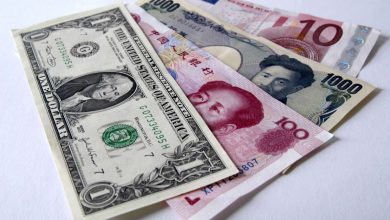Fuel Scarcity Cripples Economy as S&P’s Outlook for Nigeria Turns Negative

Hope of Resolving Fuel Scarcity Challenges Rises as Stakeholders Parley
If the recent engagement of all stakeholders in the downstream oil industry fails to address the scarcity and pricing challenges, it is likely to become endemic till the national and Dangote refineries come on stream. The Group CEO of NNPCL, Mele Kyari, has said the scarcity is not a supply but a distribution problem. While it is difficult to dispute the claim as the national oil company continues to report the evacuation of over 64m litres of fuel daily, independent marketers say the products are yet to be available in sufficient quantities. Howbeit, some marketers claim the scarcity and differential pricing will soon fade as all stakeholders have agreed to comply with a pricing framework, but some marketers are currently selling at higher prices to exhaust existing stocks. Analysts expect that panic-buying will continue to stoke demand, while supply will be threatened by arbitrage, smuggling, and opaque regulations. Analysts are hopeful that the challenges will be resolved in days but believe some saboteurs may undermine the agreed framework, which could leave no further relief for the industry till the subsidy is fully removed.
S&P Nigerian Outlook Turns Negative as Debt Concerns Worsen
On Friday, S & P rating agency affirmed Nigeria’s credit rating at ‘’B-/B’’ but turned negative on its outlook, citing increasing risk to the country’s debt servicing capacity over the next one-to-two years as the main trigger for the downgrade. While other rating agencies Moody’s and Fitch lowered the country’s rating by one notch last year, S&P kept the rating at ‘B-/B’ with a stable outlook in 2022. This downgrade is the second in 2023 after Moody’s agency downgraded the country to ‘Caa1’ from ‘B3’, owing to the deteriorating government’s fiscal and debt position. S&P mentioned that Nigeria’s debt servicing capacity has weakened due to high fiscal deficits and increased external pressures. Analysts believe the multiple downgrades narrow Nigeria’s access to external funding and limit borrowing to only the domestic market. The dollar-denominated government bond should turn bearish in reaction to the S&P rating, seeing that Moody’s downgrade pulled down the market last week.
Rising Cost of Inputs, Security, Threatens Food Production in Northern Nigeria
Food production in Nigeria is facing numerous challenges that threaten the ability to meet the demands of over 200 million people. The largest challenges are the rising cost of inputs, such as seeds, fertilizer, and labour coupled with rising insecurity, which is making it difficult for farmers to access their lands and markets. The high cost of inputs has put a strain on prices while reducing farmers’ profit and increasing consumer spending.
As farmers have found it difficult to purchase fertilizer in recent years, food production has gradually reduced. Wheat and Rice farmers particularly point to the serious reduction witnessed in their harvest in recent seasons. Farmers in Jigawa state, the highest rice producer and second-highest wheat producer in the country, have lamented about the situation of their farms with many experiencing a halving of their previous harvests as fertilizer costs have driven them to the reduction of fertilizer usage. Niger State farmers also added that herders have presented problems to their growing crops as they encroach in the night and graze on the planted crops making irrigation farming seem futile. This has led to many farmers switching professions by taking up commercial motorcycle riding to fend for themselves. A reduction in production in many northern states could push food prices up at a time when consumers are already stretched in their spending for food.
Number of SEC Collective Investment Vehicles (CIVs) Rise in January 2023
According to SEC data, total Collective Investment Vehicles (CIVs) maintained their upward trend as the volume of NAVs grew to 1577.81bn as of 27 January 2023. The mutual funds’ NAV also remained on the uptick as it gained over 1% in the past week to the end of the month at 1469.82bn in January 2023. The strong growth was spearheaded by the mutual funds market, notably due to the money market mutual fund’s 3% and 17.13% weekly and eight-week gain, respectively. The money market fund’s growth coincides with the strong banking index growth of 7.5% YTD but neither reflects the negative shadow of the mass digital banking downtime that occurred during the month. The equity-based funds also topped the gainers’ chart as the total NAV appreciated by 8.76% in the past eight weeks reflecting the strong positive sentiments that caused NGX ASI’s over 3% gain YTD.
Indonesia Targets June 2023 to Launch National Crypto Exchange
The Indonesia Government has finally set a date for its long-awaited national cryptocurrency exchange. The minister in charge of trade Zulkifli Hasa announced that the exchange would launch in June 2023 after it was initially set to launch by December 2022. Notably the Indonesian regulators have already registered five exchanges which will now work under the new National Crypto Exchange which is about to be launched. Analysts is of the view that this newly innovation would increase the knowledge of crypto trading in the country because the Indonesians are not vast with crypto trading. The exchange could also function as a mediator between buyers and sellers of cryptocurrency in the country and manage the flow of asset by protecting the interests of buyers and sellers.
Meanwhile, the Indian government is planning to introduce measures around crypto this year. A possible global Standard Operating Procedure (SOP) that would be use for regulating crypto assets while recognizing the central bank as the authority for issuing cryptocurrencies. The Indian government seems not to be bothered about using crypto as a currency but only particular about the risks involved in using it as a token. Although Analysts expects India to be on the Banning list before the end of Q2 due to how the India central bank repeatedly place emphasis on banning cryptocurrencies in the country (see table 1 below).

Proshare analysis




